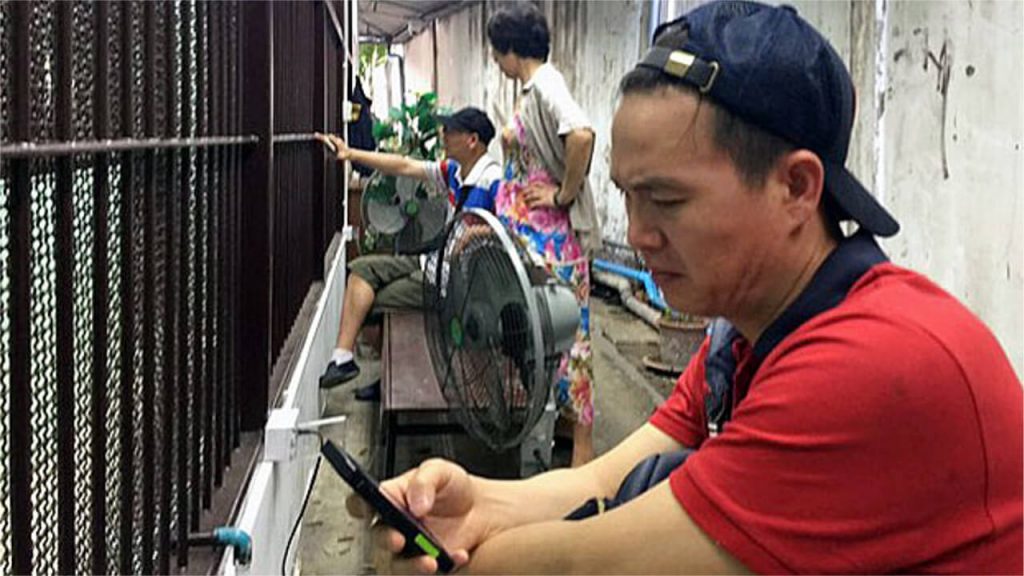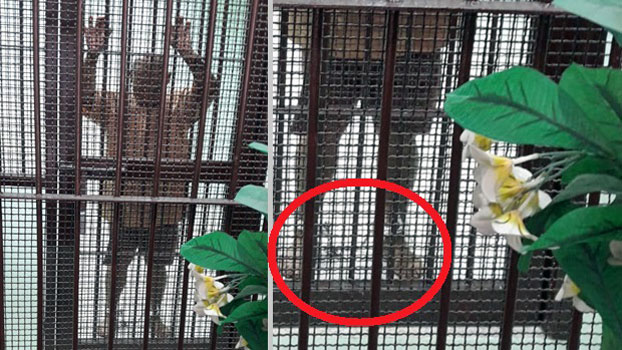
Photo courtesy of Wang Xili
A court in the Thai capital Bangkok ruled on Monday that police can hold two political refugees from China for an additional 12 days to complete investigation of their case, court official said.
Wu Yuhua, who is also known by her nickname Ai Wu, was detained by police in Bangkok with her husband Yang Chong on Aug. 29 and locked up in an immigration detention center. They had lodged a bail application last week in a bid to stall attempts to repatriate them to China, where they fear political reprisals at the hands of the ruling Chinese Communist Party.
“The couple appeared at the court in which the police sought extended custody because the case was not complete,” the official at the Pathumwan Municipal Court in Bangkok told BenarNews, an RFA-affiliated online news service.
“The court approved the custody request for another 12 days,” the officials said, adding that police had already charged them with illegal entry into the country.
Detainee Yang was being held at the Bangkok Remand Prison on the outskirts of the Thai capital, while Wu was at a remand facility for women in nearby Pathum Thani province, the official said.
He said he was unaware of a bail request related to Monday’s hearing.
Supporters of the couple said they had been registered as genuine political refugees by the United Nations and were awaiting resettlement in a third country. But Thailand, which isn’t a signatory to international conventions on refugees, doesn’t legally recognize that status.
Officials with the Bangkok office of the U.N.’s refugee agency (UNHCR), however, last week declined to confirm whether the Chinese couple had refugee status.
“UNHCR cannot comment on, or even confirm the existence of, individual cases,” Hannah MacDonald, a spokeswoman for the agency, told BenarNews.

Photo courtesy of Thai refugees
Yang and Wu were initially targeted by Chinese police after taking part in the press freedom protests in the southern city of Guangzhou in January 2013.
They fled the country in February 2015 and made their way to Thailand after Wu started a support group for disappeared rights lawyer Gao Zhisheng. In Thailand, they eked out an existence without papers in the country’s Pattaya region.
They were approved as political refugees by the United Nations High Commission for Refugees (UNHCR) in Bangkok in 2017, but had yet to be accepted for resettlement in a third country amid a global tightening of national immigration policies.
Wu and Yang were detained along with He Weiyi outside the New Zealand Embassy in Bangkok, where they had hoped to persuade New Zealand officials to consider them for resettlement.
Thailand has sent refugees of China back home in the past.
In July, authorities in the southwestern Chinese city of Chongqing jailed two rights activists sent home from Thailand as they were awaiting resettlement as political refugees, prompting an international outcry.
Dong Guangping and Jiang Yefei fled with their families to Thailand in 2015, and were granted refugee status by the UNHCR office in Bangkok.
But as they awaited resettlement in a third country, they were handed over to China by the Thai police, in a move that drew strong criticism from the U.N.
Dong and Jiang were both found guilty of “incitement to subvert state power” and “illegally crossing a national border” by a court in Chongqing.
Jiang received a six-and-a-half-year jail term, while Dong was sentenced to three-and-a-half years, their relatives said, citing phone calls with police and online reports.
In July 2015, Thailand forcibly repatriated nearly 100 Uyghurs to China, a move that drew criticism from United Nations officials and human rights groups. The UN High Commissioner for Refugees said it was shocked at the deportation of a group believed to include women and children who did not wish to return to China, where the Turkic-speaking Muslim minority that suffers harsh repression under Chinese rule.
Reported by BenarNews, an RFA-affiliated online news service.
Source: Copyright © 1998-2016, RFA. Used with the permission of Radio Free Asia, 2025 M St. NW, Suite 300, Washington DC 20036. https://www.rfa.org.












